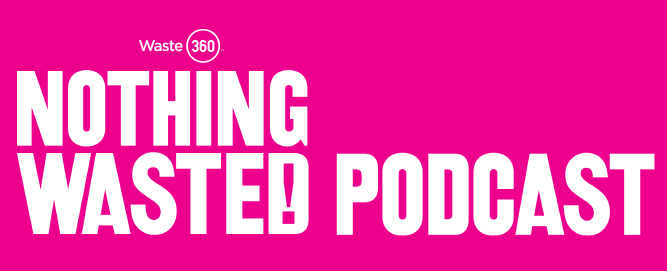In this week’s episode of NothingWasted!, we chat with Denise Patel, U.S. program director for the Global Alliance for Incinerator Alternatives (GAIA). GAIA advances successful, community-driven waste solutions through systems change and policy advocacy, focusing on three initiatives:
- Promoting zero waste
- Reducing problematic waste streams
- Putting an end to the ineffective and hazardous practice of burning waste
We spoke with Patel about her passion for human rights advocacy, how her work is shifting due to COVID-19, what the current pandemic means for our climate and more.
Here’s a sneak peek into the discussion:
Waste360: We can’t talk these days without mentioning COVID-19. How is this impacting your work and world?
Denise Patel: I live in New York, the epicenter of the pandemic. And we are at a clear moment where there needs to be a lot more leadership at every level. So, it has been quite a journey personally. At GAIA, which is a global organization, we’ve been shifting our work and have been communicating a lot with our partners abroad to learn about what they’ve been experiencing with COVID-19. We’ve also been checking in a lot with all of our community partners here in the U.S., many of which are grassroots operations. A lot of them have switched their priorities to fight eviction notices, make sure their constituents have the groceries and medicines they need and things like this at this time.
Waste360: What other concerns are you seeing?
Denise Patel: We’re also working with a number of other organizations as part of a national network to see what other needs are out there, and we’re building a support network to provide needed resources and education. I’ve got my eyes on a lot of different waste streams—particularly what’s going to happen to all of the medical waste. Every single piece of personal protective equipment that is used goes somewhere—often times in a landfill or incinerator. For communities living near incinerators, this is a big concern.
Waste360: Do you think this pandemic will have a long-term impact on the environment?
Denise Patel: I’m hopeful that coming out of the pandemic, we won’t just go back to business as usual, especially related to our travel habits and other impacts humans have been making on the climate. We’re all seeing a lot of flaws in our current system, and I hope people are taking to heart the lessons we’re learning. We need to understand the need to make critical shifts.
Listen to the full interview with Patel below and more episodes here. Read transcript here.

